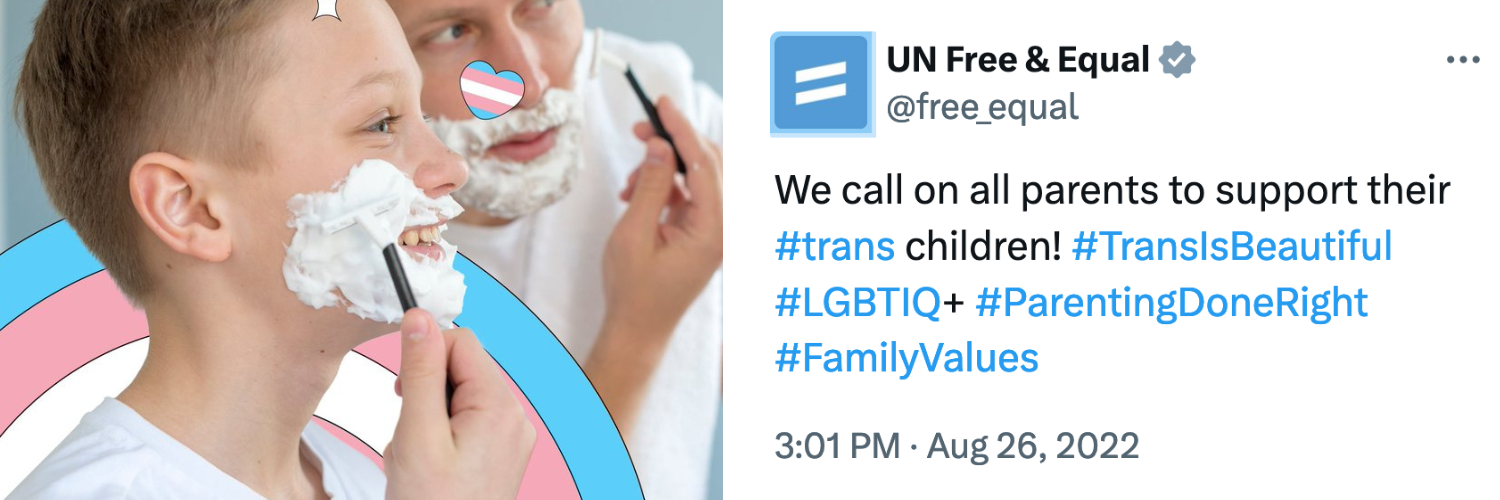WASHINGTON DC, May 24 (C-Fam) While the UN was observing its annual day against “homophobia, biphobia, and transphobia,” protesters in Peru were protesting that country’s recent classification of transgenderism as a mental illness in health insurance.
Meanwhile, several European countries including Italy refused to sign an EU declaration related to the annual observance. The Italian family minister called the declaration “unbalanced” and criticized the celebration for denying “not only biology but also the body, which is based on the gender difference between men and women.”
Issues relating to sexual orientation and gender identity remain highly controversial in UN negotiations, yet in recent years, the issue of transgenderism has emerged as uniquely contentious, even among those who promote tolerance of homosexuality and other controversial issues relating to sexuality, such as abortion.
In the years since 2015, when the United States Supreme Court made same-sex marriage legal, LGBT activist groups have made rapid progress in promoting transgenderism, including so-called “gender-affirming” medical procedures, including the surgical removal of otherwise healthy breasts and penises, this even for children. Both in the U.S. and in international institutions, they found support within health institutions.
The World Health Organization (WHO) cited transgender activist groups when its most recent diagnostic manual update removed gender dysphoria from being classified as a mental disorder and placed gender incongruence in a new chapter on sexual health. In this way, transgender identity was no longer classified as a disease at all—which activists claimed was stigmatizing—but could still receive a diagnosis, which is important for ensuring that “gender-affirming” procedures would be covered by health insurance.
Opposition, although delayed, has arrived, and not only from social conservatives. Some of the most outspoken critics of transgenderism are feminists, some of whom identify as lesbians. Within the scientific community, skepticism is mounting over the exaggerated claims that “gender-affirming” procedures produce positive outcomes, particularly for minors. In the United Kingdom, the recent “Cass review” surveyed the medical literature and concluded that the evidence supporting these interventions for children, including puberty blockers, was weak.
While the UN’s human rights experts have largely embraced transgenderism as a part of the larger LGBT+ and “sexual rights” area, the special rapporteur on the issue of violence against women and girls has become increasingly notable for her contrary position. Reem Alsalem, a Jordanian, was among the UN experts who criticized U.S. pro-life laws, but drew anger from transgender activists last year when she defended freedom of speech for critics of transgenderism and opposed “hate speech” laws that would attempt to censor it.
Alsalem issued a statement welcoming the publication of the Cass review, stating that it showed “the devastating consequences that policies on gender treatments have had on human rights of children, including girls.”
Her forthcoming annual report will be on the issue of violence and abuse against women and girls in the area of sports. Among the concerns she raised in a call for inputs was the fact that sporting opportunities once reserved for female athletes “are now open to male athletes based on their gender identity and who identify as women and girls,” which has “significant human rights implications.”
A group of over fifty UN human rights “experts” issued a joint statement denouncing “homophobia, biphobia, and transphobia,” as they do on April 17 each year, but Alsalem was not among them.
View online at: https://c-fam.org/friday_fax/transgender-issue-prompts-international-pushback/
© 2026 C-Fam (Center for Family & Human Rights).
Permission granted for unlimited use. Credit required.
www.c-fam.org









